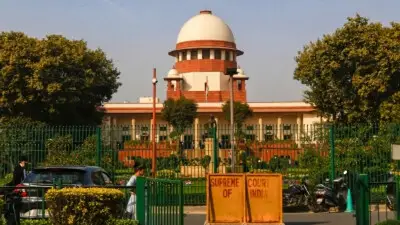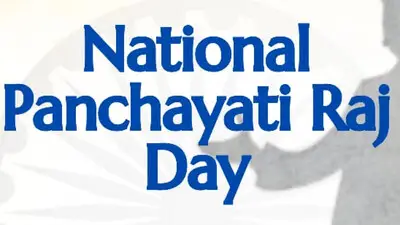Recommended Stories
"India has never been a source of proliferation of sensitive technologies and we are determined to further strengthen our export control systems to keep them on par with the highest international standards," Prime Minister Manmohan Singh said, addressing the second Nuclear Security Summit here.
He underlined that India had already adhered to the guidelines of the Nuclear Suppliers Group (NBG) and the Missile Technology Control Regime (MTCR).
"As a like minded country with the ability and willingness to promote global non-proliferation objectives, we believe that the next logical step is India`s membership of the four export control regimes," Singh said.
India is keen for membership of the NSG, MTCR, Wassenaar Arrangement and the Australia Group. At the same time, Singh said an agreed multilateral framework involving all states possessing nuclear weapons was necessary to attain the goal of a nuclear weapons free world.
"This should include measures to reduce nuclear dangers by reducing the salience of nuclear weapons in security doctrines and by increasing universal restraints on the first use of nuclear weapons," he said.
The Prime Minister also announced a contribution of one million dollars to the International Atomic Energy Agency`s Nuclear Security Fund for the years 2012-13.
He said India was also expanding its technical assistance to developing countries, including providing "our indigenously developed Cobalt tele-therapy machines -- Bhabhatrons -- for cancer treatment".
The tele-therapy machines have been donated to Vietnam in 2008 and agreements have been signed with Sri Lanka and Namibia for its supply which are a step towards affordable treatment of cancer.
The Prime Minister also released the National Progress Report on the steps taken by India to secure its nuclear installations and fissile material. On India`s nuclear programme, Singh said comprehensive reviews of nuclear safety measures have been undertaken at nuclear facilities.
"India has invited the Operational Safety Review Teams of the IAEA to assist in its own safety reviews and audit," he said.
Nuclear safety evaluations were being put in the public domain to enhance transparency and boost public confidence, Singh said, adding that India was also in the process of setting up a statutory, independent and autonomous Nuclear Safety Regulatory Authority.
"We are strengthening emergency preparedness and response to nuclear accidents," he said.
The Prime Minister said India was determined that its expanded nuclear power programme would follow the highest standards of nuclear safety and security, whose synergy is essential to restore public faith in nuclear energy, especially after the tragic events at Fukushima.
He said the Global Centre for Nuclear Energy Partnership, which India had announced at the Washington Summit in 2010, has been making good progress and the physical infrastructure for the Centre was being set up.
"We have commenced `off-campus` courses. Such courses will be held more frequently in the future," he said, adding documents have been signed for cooperation on the Global Centre with the US, Russia, France and the IAEA.
India will participate in IAEA`s 2013 International Coordinating Conference of various nuclear security activities, including the Global Initiative to Combat Nuclear Terrorism and the Global Partnership, he said.
The Prime Minister also released the National Progress Report on the steps taken by India to secure its nuclear installations and fissile material. On India`s nuclear programme, Singh said comprehensive reviews of nuclear safety measures have been undertaken at nuclear facilities.
"India has invited the Operational Safety Review Teams of the IAEA to assist in its own safety reviews and audit," he said.
Nuclear safety evaluations were being put in the public domain to enhance transparency and boost public confidence, Singh said, adding that India was also in the process of setting up a statutory, independent and autonomous Nuclear Safety Regulatory Authority.
"We are strengthening emergency preparedness and response to nuclear accidents," he said.
The Prime Minister said India was determined that its expanded nuclear power programme would follow the highest standards of nuclear safety and security, whose synergy is essential to restore public faith in nuclear energy, especially after the tragic events at Fukushima.
He said the Global Centre for Nuclear Energy Partnership, which India had announced at the Washington Summit in 2010, has been making good progress and the physical infrastructure for the Centre was being set up.
"We have commenced `off-campus` courses. Such courses will be held more frequently in the future," he said, adding documents have been signed for cooperation on the Global Centre with the US, Russia, France and the IAEA.
India will participate in IAEA`s 2013 International Coordinating Conference of various nuclear security activities, including the Global Initiative to Combat Nuclear Terrorism and the Global Partnership, he said. .












